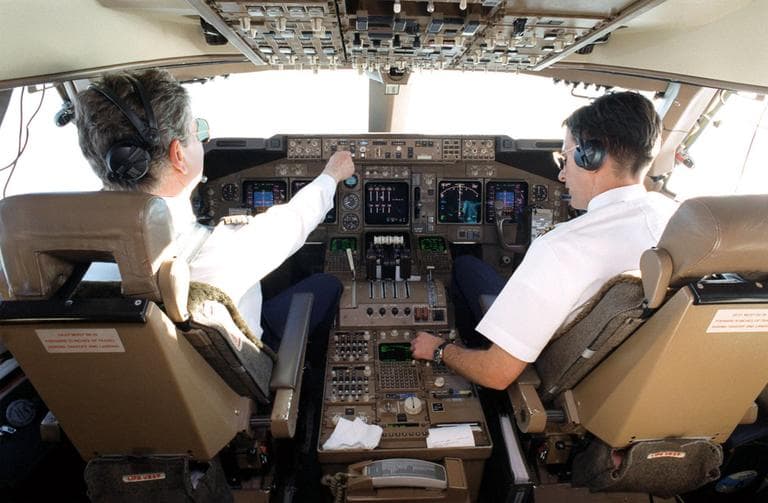Advertisement
U.S. Airlines Face Pilot Shortage
Resume
Airlines are facing yet another road bump. This time it's not fuel prices or failing equipment, but a looming pilot shortage.
The airline industry expects that a crippling shortage of qualified commercial airline pilots could hit the U.S. by next spring.
Several factors have contributed to the problem. The last pilot hiring boom took place in the 1980s, and now those pilots are reaching the mandatory retirement age of 65. Meantime, the starting salaries for beginning pilots - sometimes as low as $20,000 a year - are too low to attract new recruits.
"There seems to be a consensus that the system as it currently stands is not really going to withstand the shortage."
"There are incredible cost cutting pressures," Andy Pasztor, who has been covering the story for The Wall Street Journal, told Here & Now. "There's been an equilibrium over the years - enough pilots to fill those seats and work for those salaries. But I think everyone sees a major problem coming in the next several years."
On top of the low starting salaries and impending wave of retirements, the Federal Aviation Administration has implemented a new regulation, set to begin in August, requiring all commercial pilots to have 1,500 hours of flight time before being hired. That's a significant jump from the current number of hours needed to be hired.
In the past, commercial pilots have been hired with as few as 250 or 300 hours flight time, according to Pasztor. With the new rule in place, the pool of qualified pilots will shrink dramatically, and some who are already flying may find themselves unqualified.
"The reason that it is a serious issue - and it will turn into an even more serious issue - is that you're starting to have industry folks and government officials starting to come up with new, innovative ways to train pilots," Pasztor said. "There seems to be a consensus that the system as it currently stands is not really going to withstand the shortage."
Smaller airlines says they may be forced to cancel flights or suspend service to smaller cities, as a result of the pilot shortage. But from the perspective of the average passenger flying on major airlines, Pasztor said they may not feel the impact of the shortage for several years.
- Wall Street Journal: Airlines Face Acute Shortage of Pilots
Guest
- Andy Pasztor, reporter at The Wall Street Journal.
This segment aired on November 14, 2012.